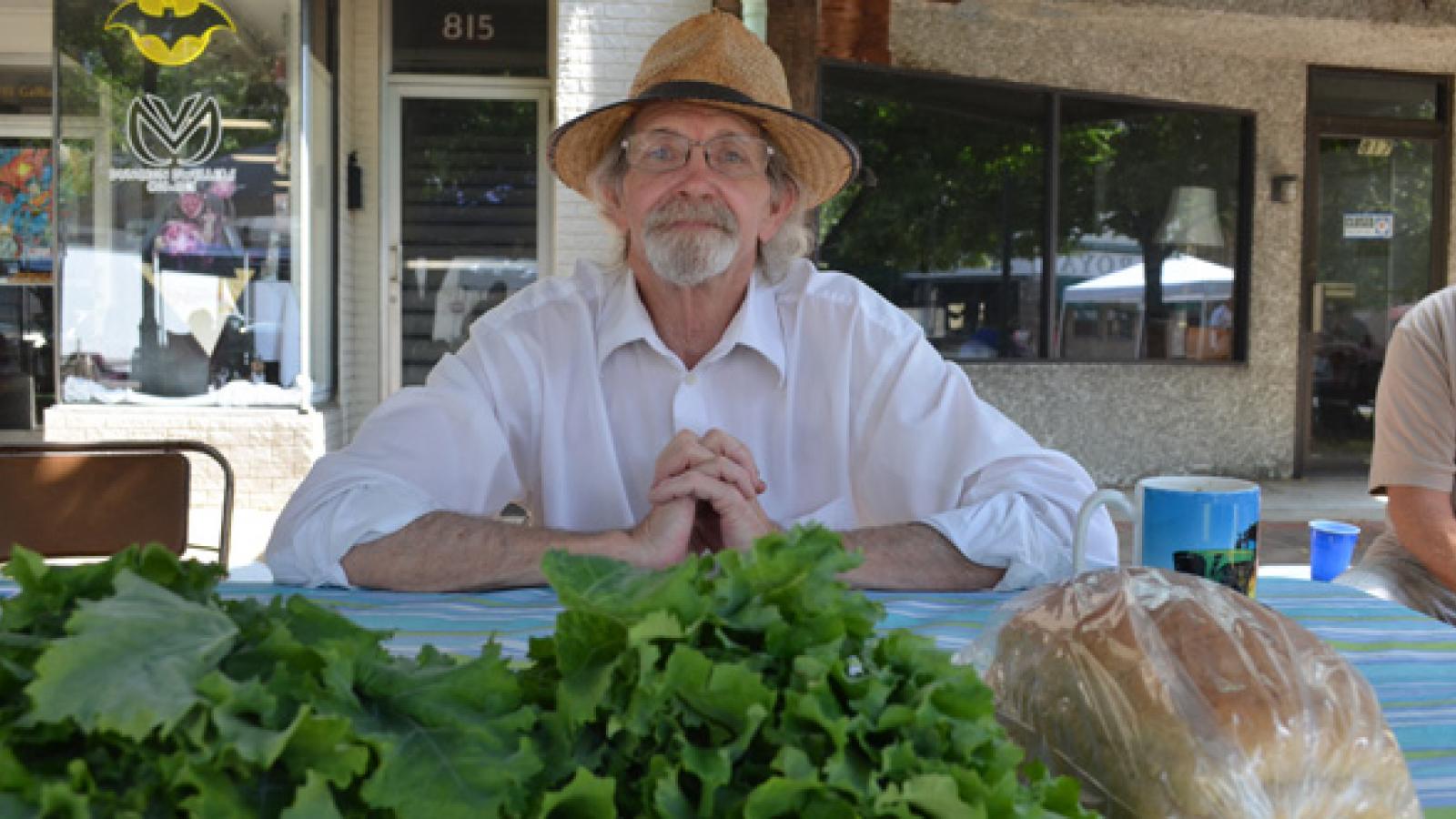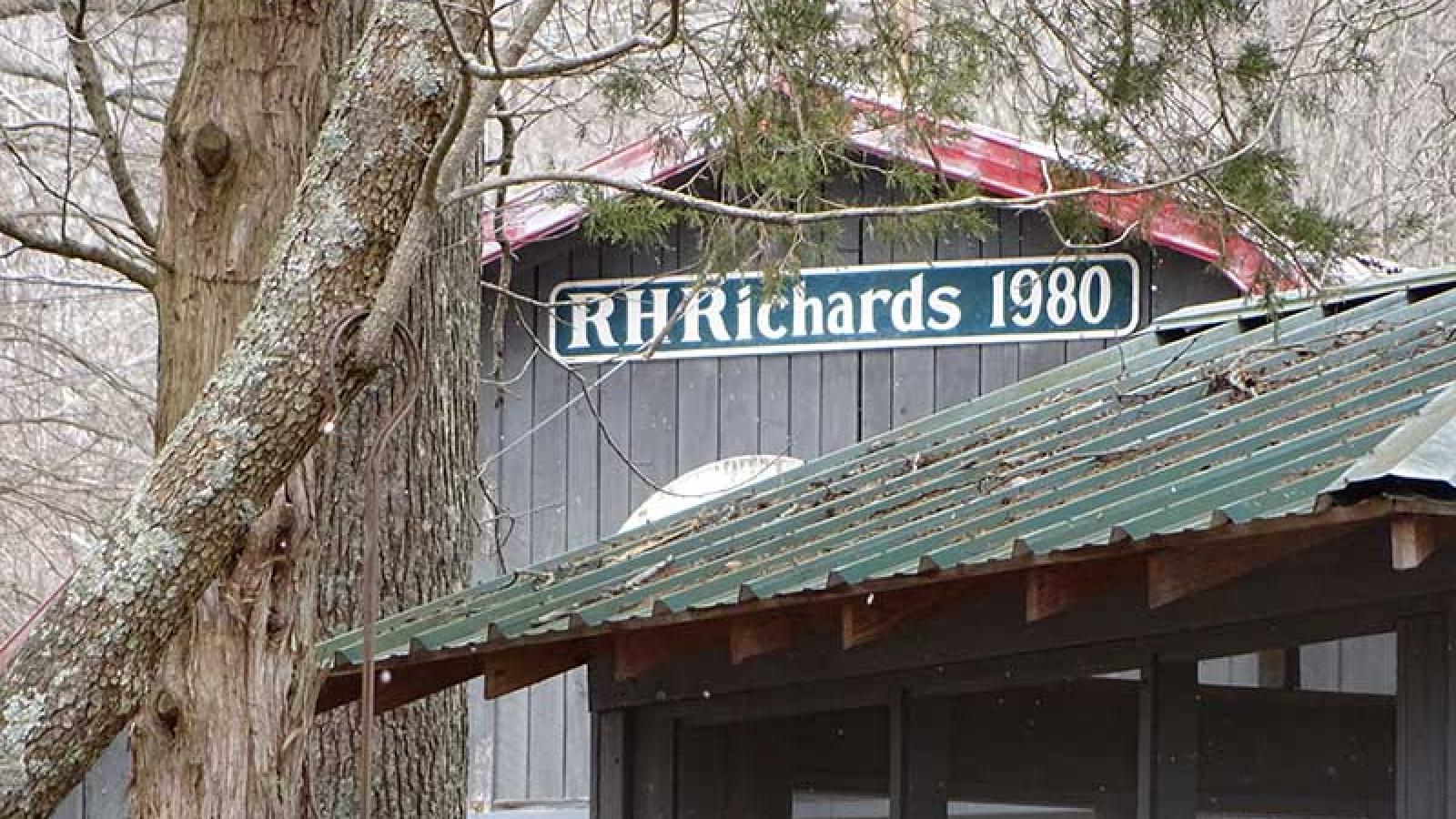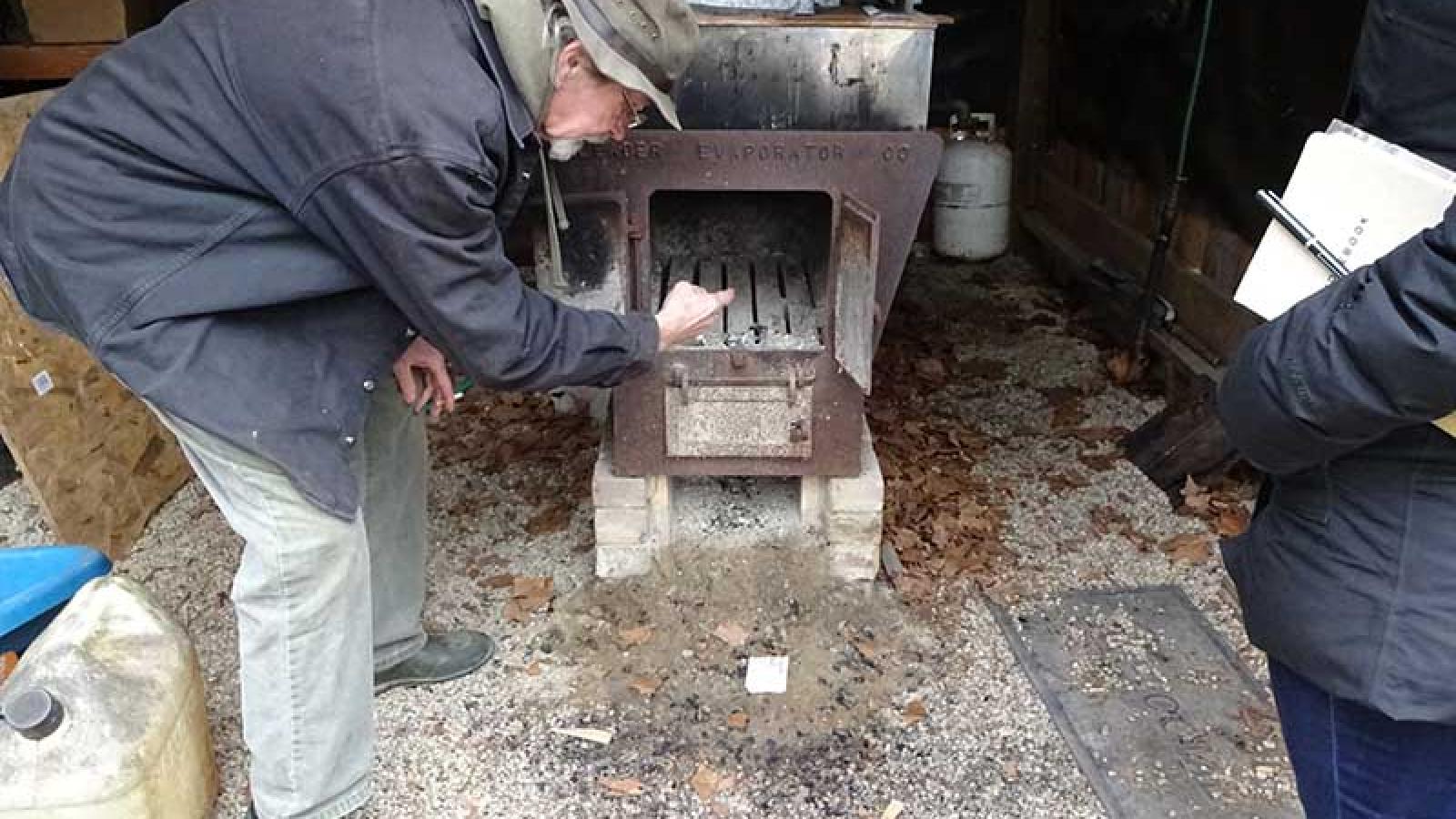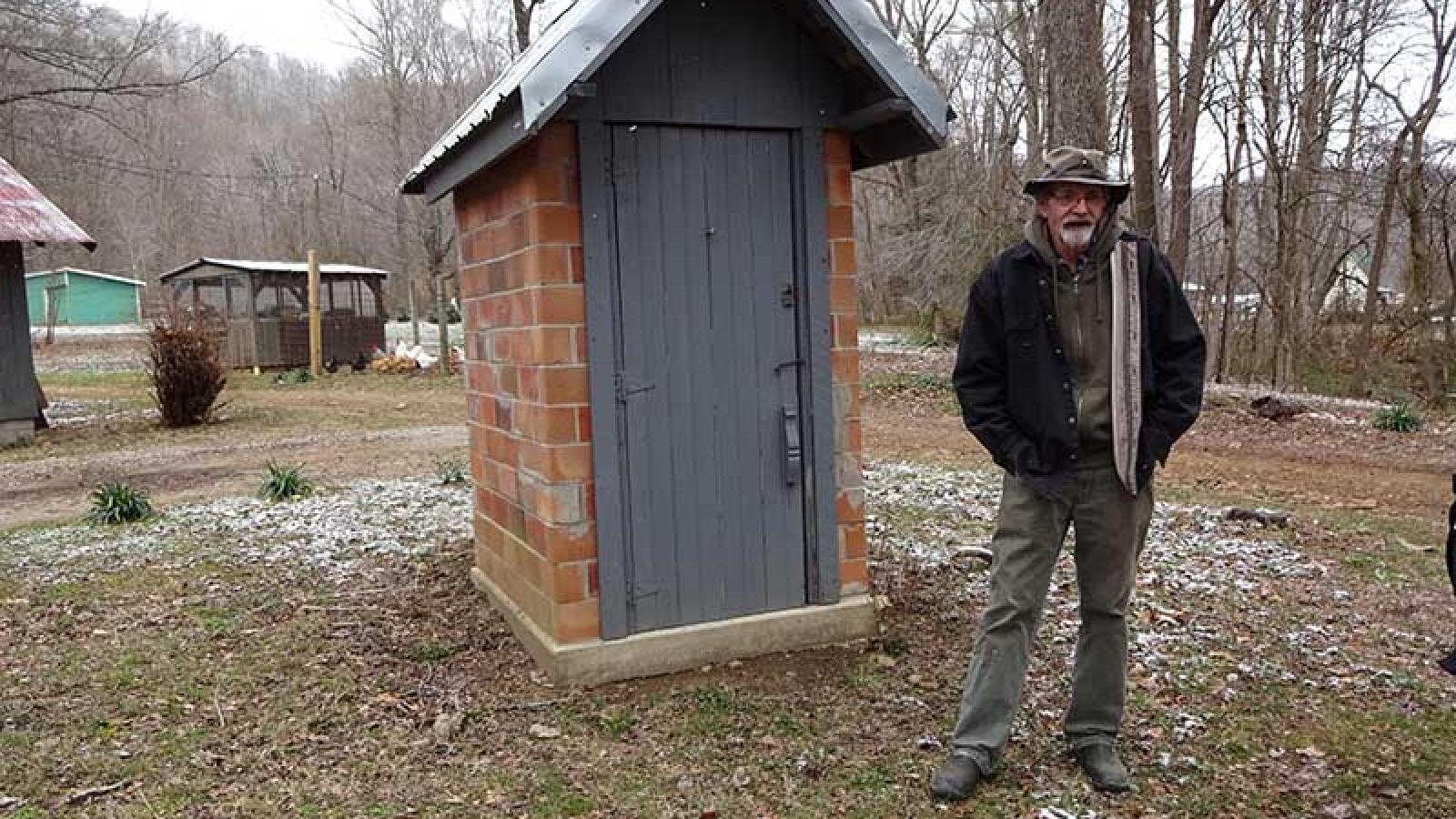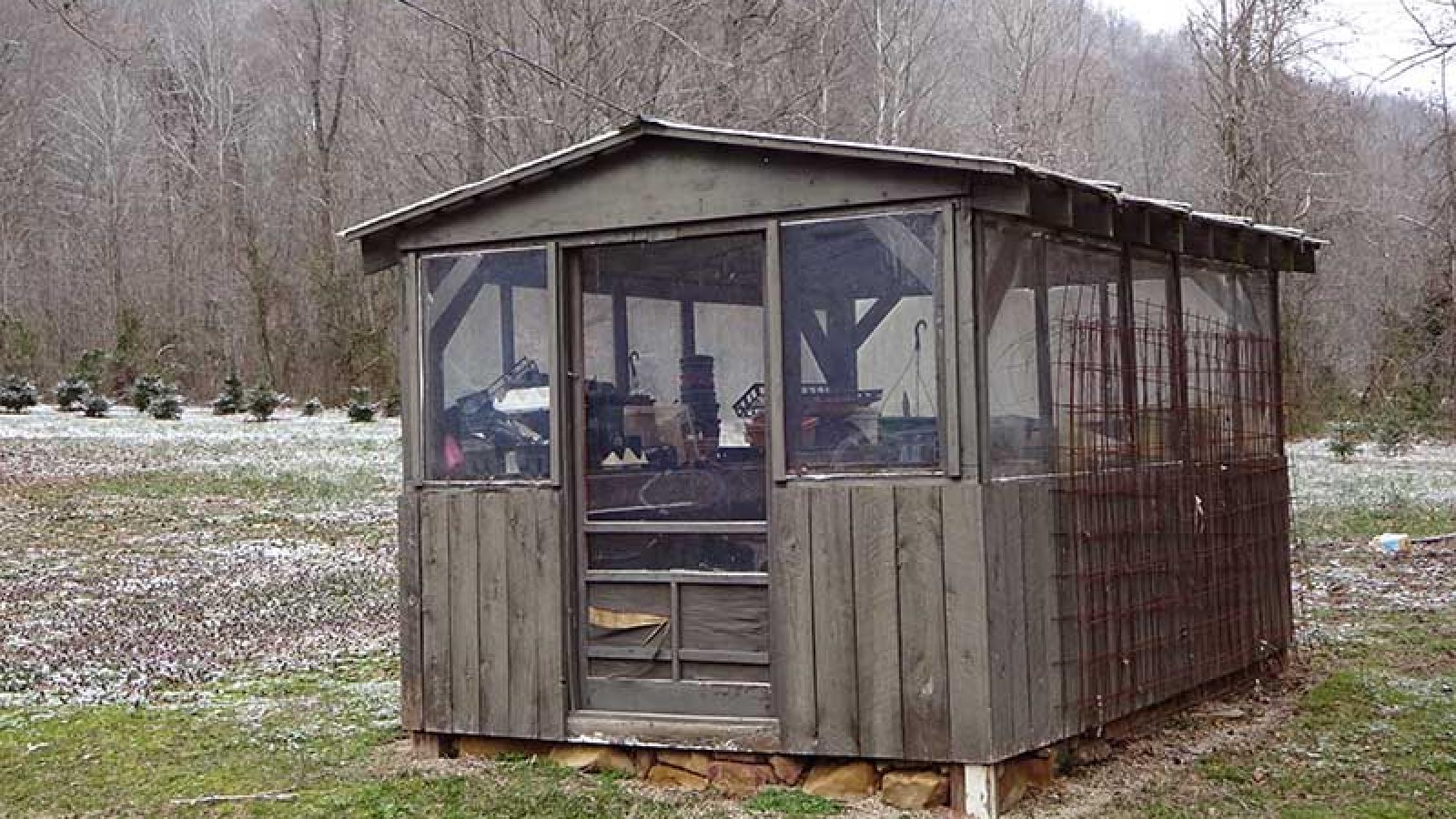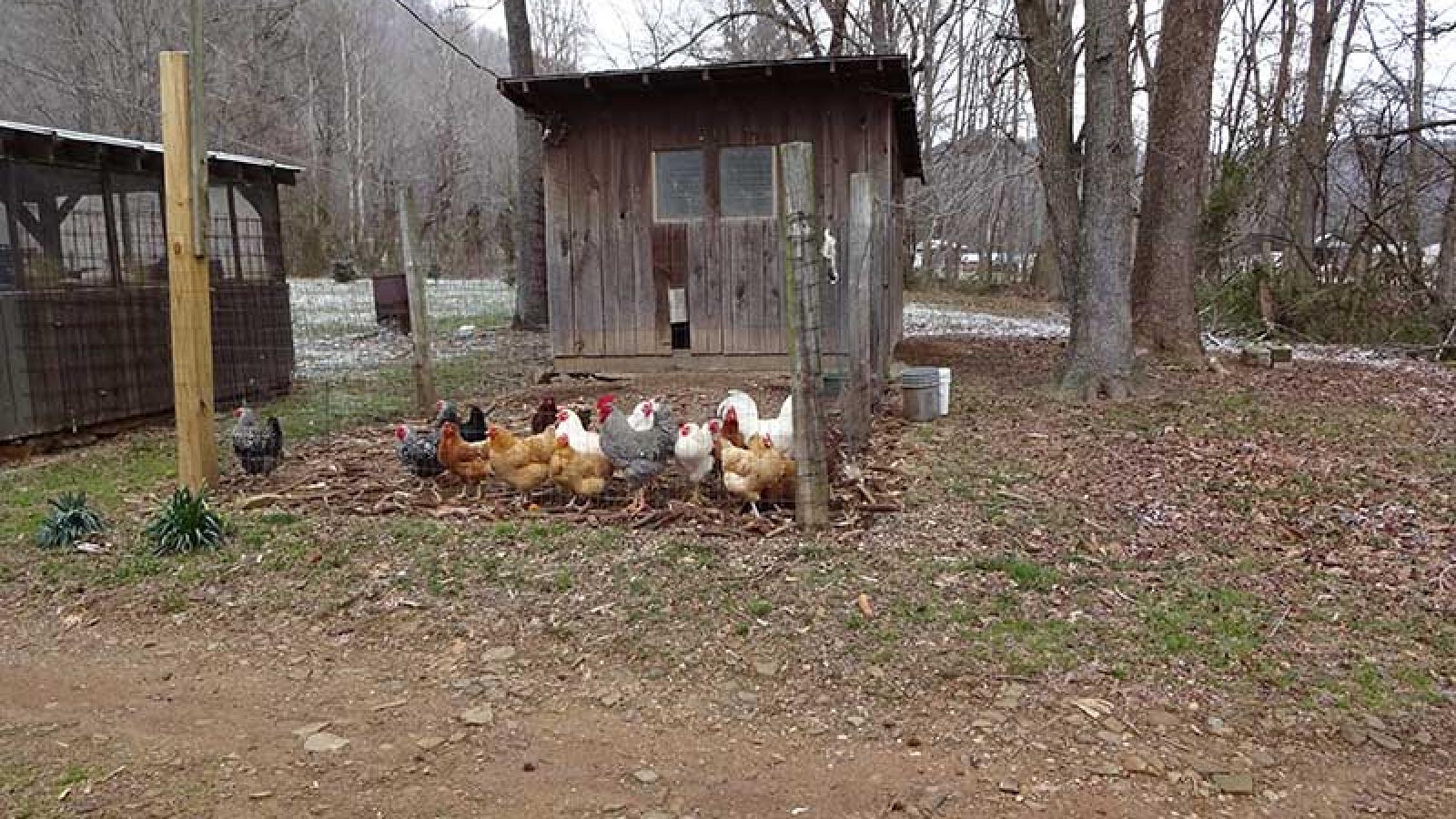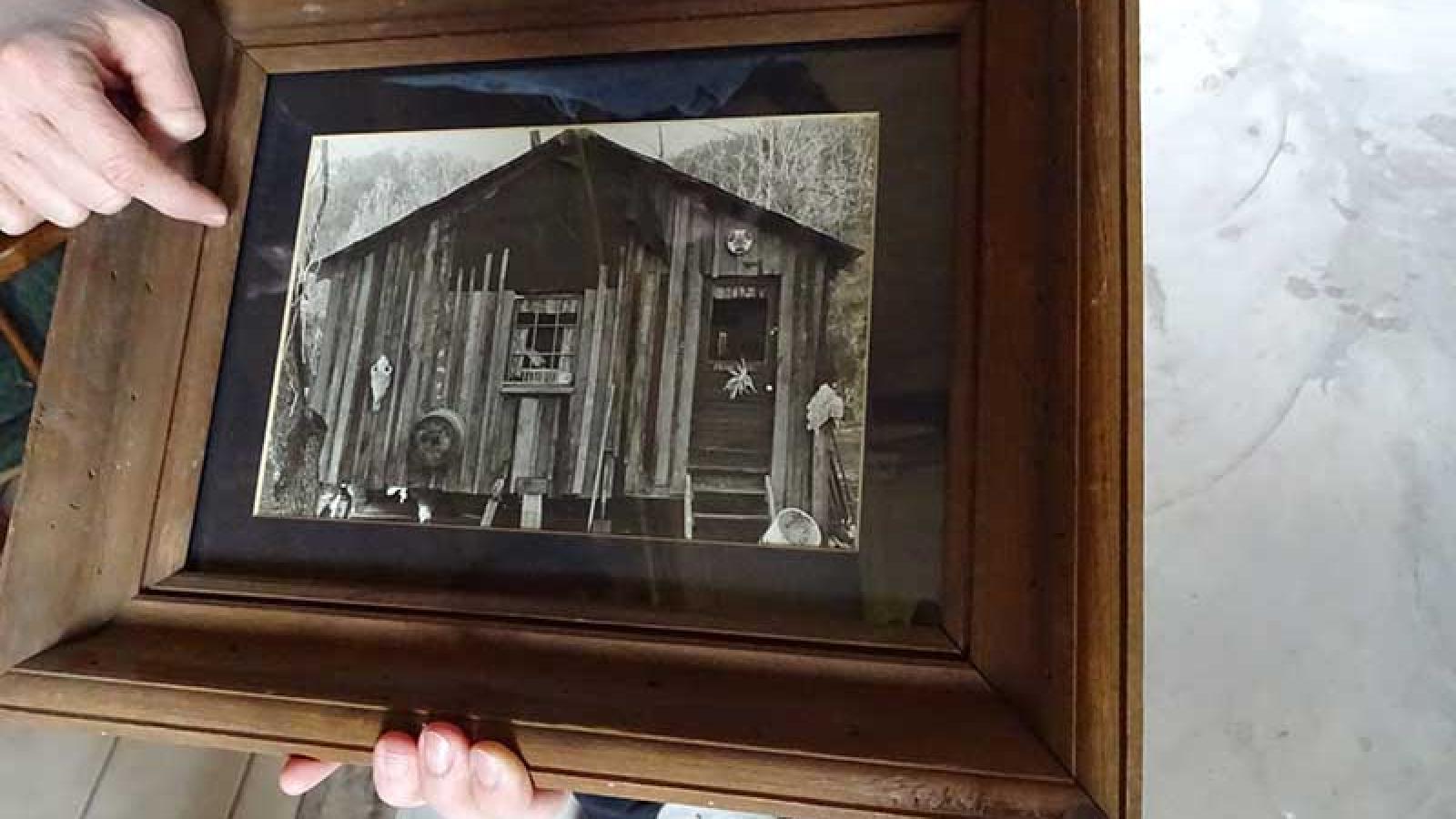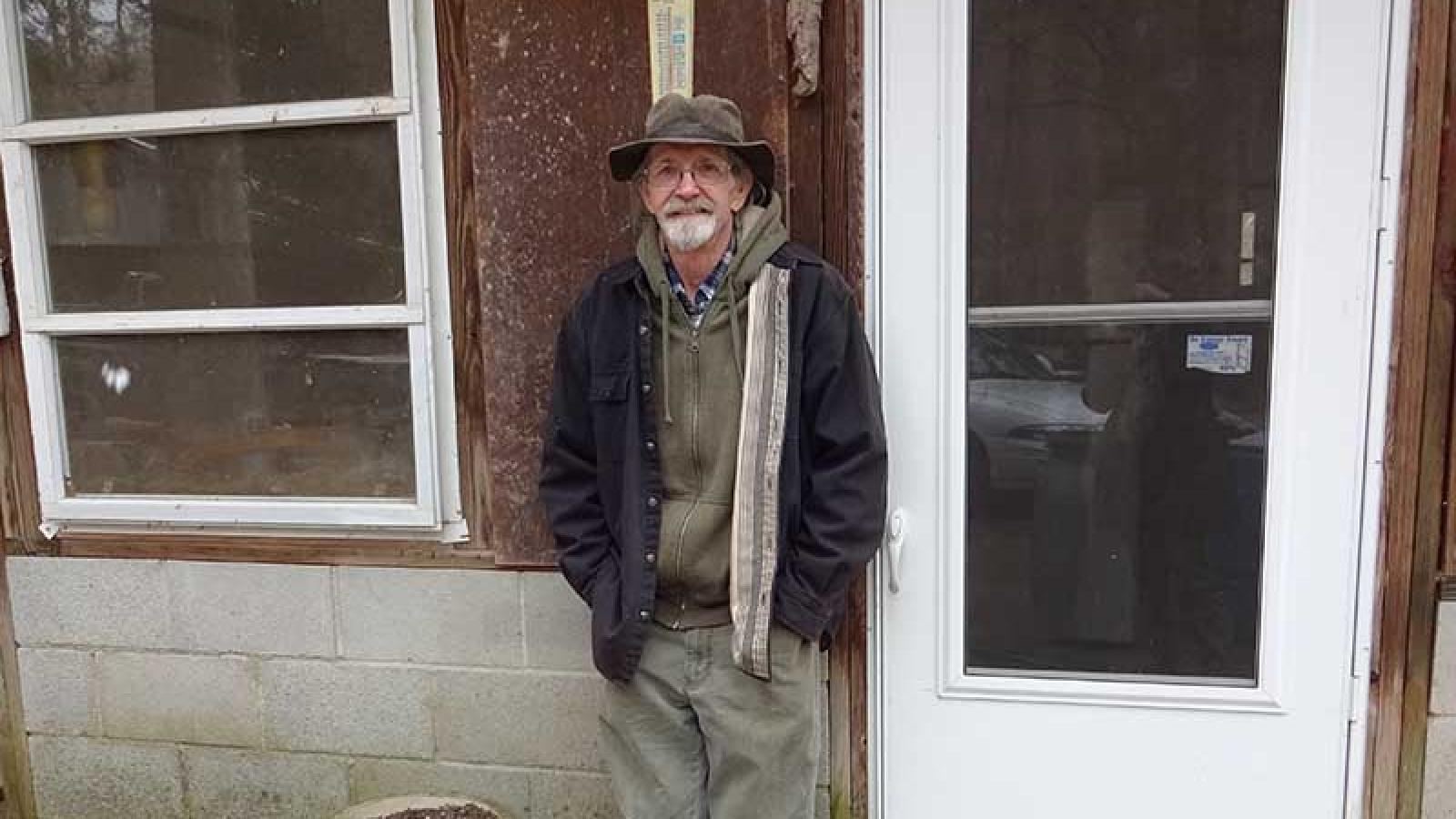Life From Scratch: The Ronny Richards Homestead
Ronny Richards can now almost be called fixture in the landscape of Scioto County. He is easily recognizable, having lived there for close to five decades, and run for state political office. Ronny ran for Ohio congress twice and came in second of four candidates in 2014. But as a transplant of sorts to the community, we had a chance to learn about how he came to be in Scioto County. Though by strict definition he might be considered an outsider, Ronny came to be on his land in much the same way as many others, which is to say that he “inherited” it in a way. After returning from the Vietnam War, and a short career as a logger in the Western part of the United States, he bought a plot of undeveloped forested land outside of Portsmouth for a low price from his aunt, and in the early 1970s he moved his young family and built an 18x24-foot house for them to live in.
Ronny talks about the kind of work he did after moving.
Ronny now home-produces almost enough to food to live on, and he sells extra at the farmer’s market. On the property, he has built built other structures as needed, and he builds them to last. Even the chicken house he expects to outlive him, as well as a smokehouse, shed, gazebo, and maple syrup evaporator. With this setup he can smoke his own meat and make his own maple syrup, in addition to canning potatoes and jam from raspberries and strawberries.
The natural landscape and outdoor culture of Scioto County are reasons why Ronny sees incredible value here. He is able to direct his own tendency to build (homes, sheds, smokehouses, stoves, farms) at making use of the local resources in a way that can sustainably provide for his family and the community. In the land, he sees financial opportunity as well as cultural and emotional resources for his family and neighbors. These sentiments motivated his political campaign, as reasons to address the detrimental effects of environmental toxicity, including local drug epidemics and their harmful effects. He believes that high rates of cancer among people who worked and lived near industrial manufacturing, –e.g. the uranium plant, coal mines, refineries, etc.– caused too many people to rely on prescription painkillers leading to the rise of heroin and meth among younger folks. Unfortunately, he said, one has to win, and it takes money to win. But he remains a local character.
Overall, his attitude of hope drives his investment in the landscape, one that he would necessarily identify as lacking in younger communities. All of his solutions are tied to the success of people’s symbiosis with the landscape around them. In other words, if you support it, it will support you.
Fieldworkers
Sara Dove
Ryan Patrus
Digital Gallery Editor
Madeleine Smith

